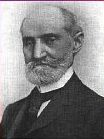Fever
Type: Quotidian, tertian. Sporadic or endemic, of spring, summer, winter. Rarely called for in autumn. Time: 5, 10 and 11 A.M. – 1, 3, 4, 3 to 4 and 9 p.m. Prodrome: Great languor and aching in the large joints. Chill: Chills, with slight thirst, alternate with heat several times a day. Chilliness with disposition to yawn and stretch. Frequent creeping chills along the spine between the shoulder-blades, up the back to nape of neck, intermingled with hot flushed (chills along the spine, running up the back in successive waves, Gelsemium ). Chills commencing in the back between the shoulder – blades (Caps.). Coldness of nose, hands and feet. Great languor, with severe aching pains in back, large joints, and bones of legs (Eup., Podophyllum), yawns and stretches. Severe chills, lasting two hours, followed by heat and perspiration. Unusual chilliness when the open air is encountered, with icy coldness of the nose. Heat: With thirst, constant, lasting all night (after evening chill, Lycopodium, Pulsatilla, Rhus ). Skin extremely hot and dry. Face hot and flushed, with prickly sensation (Nit- ac.), hands, palms, feet hot and dry. Thirst not excessive, nausea and vomiting often occur during heat. Sweat: Profuse after midnight, sweat all night, mild in recent, profuse in old chronic cases. Tongue: Coated white: or yellow thick coat, with red tip. Taste, bitter, coppery. Loss of appetite. Desire for sour things, which always relieved symptom. Apyrexia: Pain in liver, with jaundice of the skin and great lassitude. Pain in abdomen between stomach and navel, loud rumbling in the bowels. Constipation, dull headache and great languor, or congestion of food to the head with vertigo. Intermission very short, fever almost continuous in severe cases, and apt to become remittent. Best adapted to old, long standing cases that have been saturated with Quinine, and remained proof against all febrifuges.

